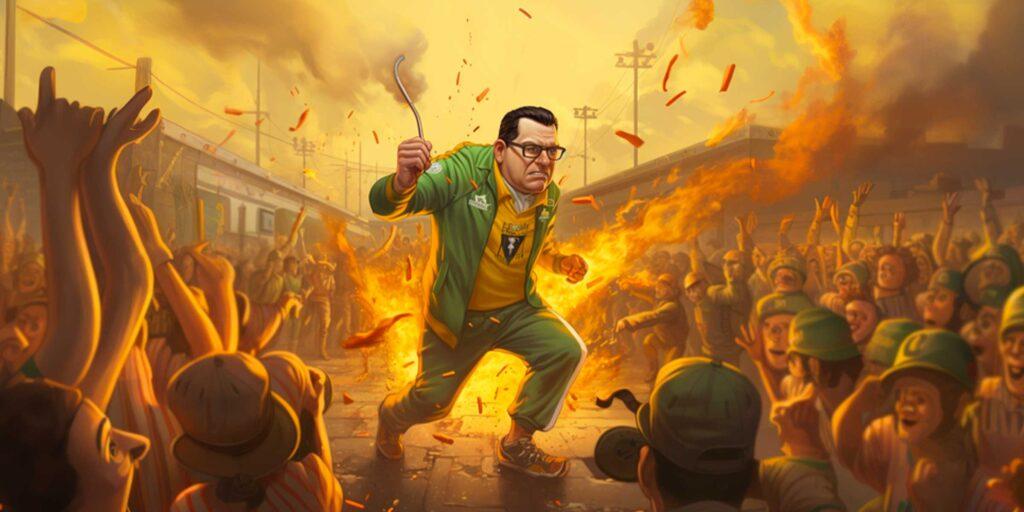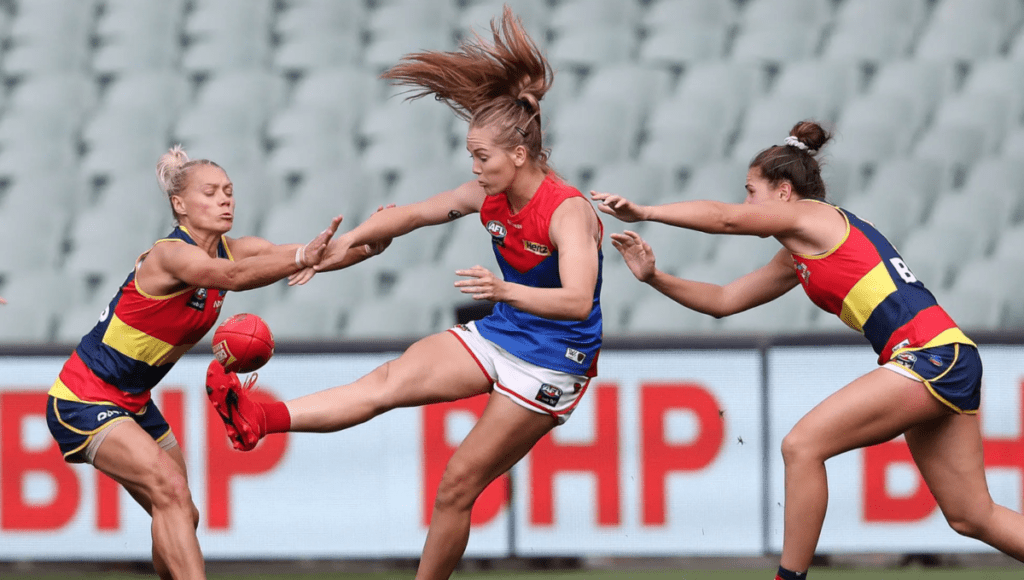Making the tough calls in a tumultuous time
Imagine, if you can, the first game of Australian rules football. Played on 7 August 1858 – between Scotch College and Melbourne Grammar – it’s the first recorded game whereby the rules it followed became the blueprint for today’s modern code. There has been much conjecture around the origins and subsequent provenance of the code; did it arise from the Indigenous game of Marn Grook? Or perhaps it emerged from the English games of football that were developed at the schools of Rugby and Eton? Australian football’s origins remain intriguing, but equally as intriguing were the umpires who adjudicated the game on that August day.
One of them was Australia’s first sporting icon, Thomas Wentworth Wills; a figure who even today creates as much conjecture as the origins of the game itself. Having grown up in Victoria’s Western District, Wills embodied the foundation myth of the game, quite possibly playing Marn Grook before he went on to rugby and became a sporting champion.
The other, Dr John Macadam, had an equally interesting story. Macadam, a Scottish-Australian, was a chemist, medical tutor, politician, and the secretary of the Burke and Wills expedition. With a full beard and hair that was bright red, the Macadamia nut was named after him.
My apologies for the long introduction but the there’s an important point to it all; despite the drama that occurs on the field, the most important ‘player’ on the ground is not the players at all. It’s the umpy.
With the advent and explosion of women’s football in Australia, the need for the broad mechanics that facilitate the code have come into sharper focus. Football clubs, historically the domain of men, have needed to adapt. Changerooms, fixtures, coaching and support staff have all needed to evolve and expand to accommodate the inclusion of women, leading to an unforeseen consequence: a shortfall of some six thousand umpires.
This situation is potentially diabolical, and I’m not just talking about games not being able to be played on any given weekend. The shortfall may be in response to how we treat umpires, which has been highlighted by the AFL’s recent crackdown on player dissent towards them. So what? I hear you say.
The reason why this is both important and intriguing is the way it challenges one of the central quotidian behaviours of the code; that is, that the punter has the right, nay duty, to abuse, harangue and grossly vilify the umpire during the game. If it’s encouraged and enabled at the elite level against ‘the maggots’, what the actual fuck do you think happens at community games?
The reason for this abuse is historic and cultural – a potent cocktail that has been around since John Macadam was officiating. And it’s for this reason it will be hard to change. But change is required, not just because of the shortfall in umpiring numbers, but because (bleeding heart spoiler alert) it’s the right thing to do.
For some, the very thought of not being able to have a crack at the ump runs counter to the authentic experience of attending the football. It’s as normal as having a pie and beer while watching the match. Well, perhaps for some the way umpire vilification has evolved within the game need a reminder that it’s not okay.
When Rule 30 arrived in 1995, the issue of vilification was highlighted as a problem that needed to be eradicated. For too long Indigenous footballers had to endure what was meted out to them, which usually resulted in retaliation – and more insidiously – players walking away from the game. How many chose to leave or not take up the opportunity to play in the first instance, simply because being abused for the thing they could not change was too hard? The simple answer is we’ll never know. Nor will football, as a code, ever know what immense talent it never got to witness. We can only imagine the talent we have lost through vilification.
The dearth of umpires at community level may reflect a powerful response to the issue of player vilification. It seems completely plausible that any rational person would not put themselves in a position of harm especially on a weekend at a suburban ground because it’s simply an irrational act.
One way of understanding this is in the unscripted drama of the game itself. The next time you feel the red mist descending after an umpiring decision that you don’t agree with, ask yourself this: when has an umpire ever changed their minds having made a decision? The answer is never. My advice is to go to the footy, enjoy yourself and save your rage for those who really deserve it – politicians.



